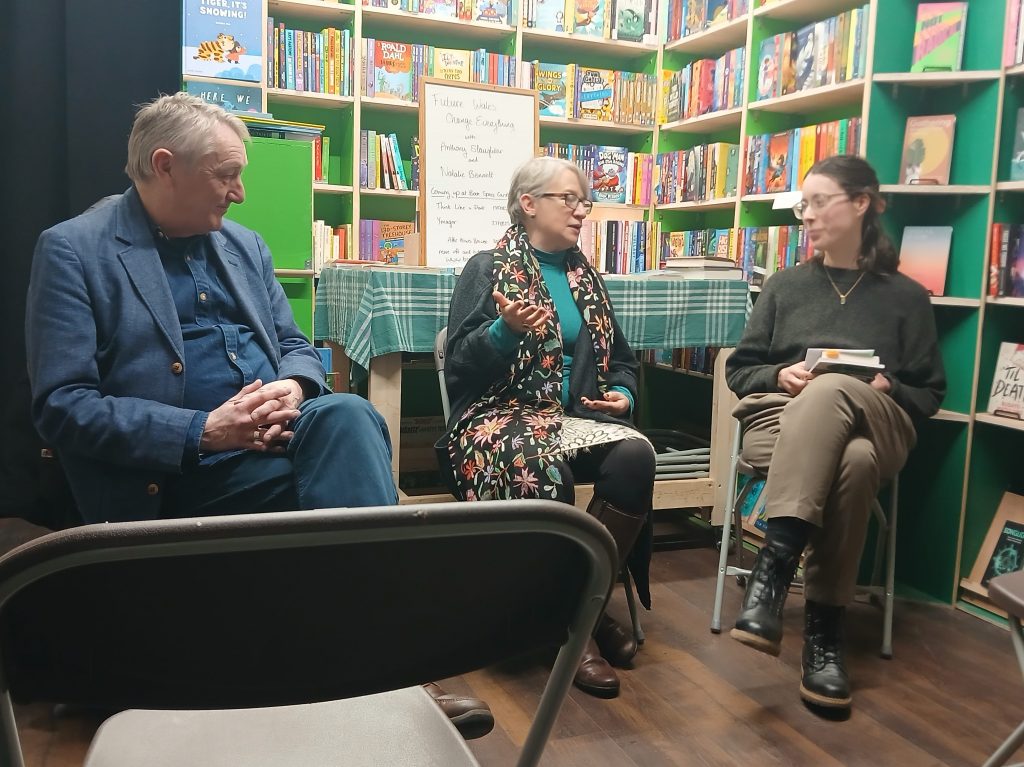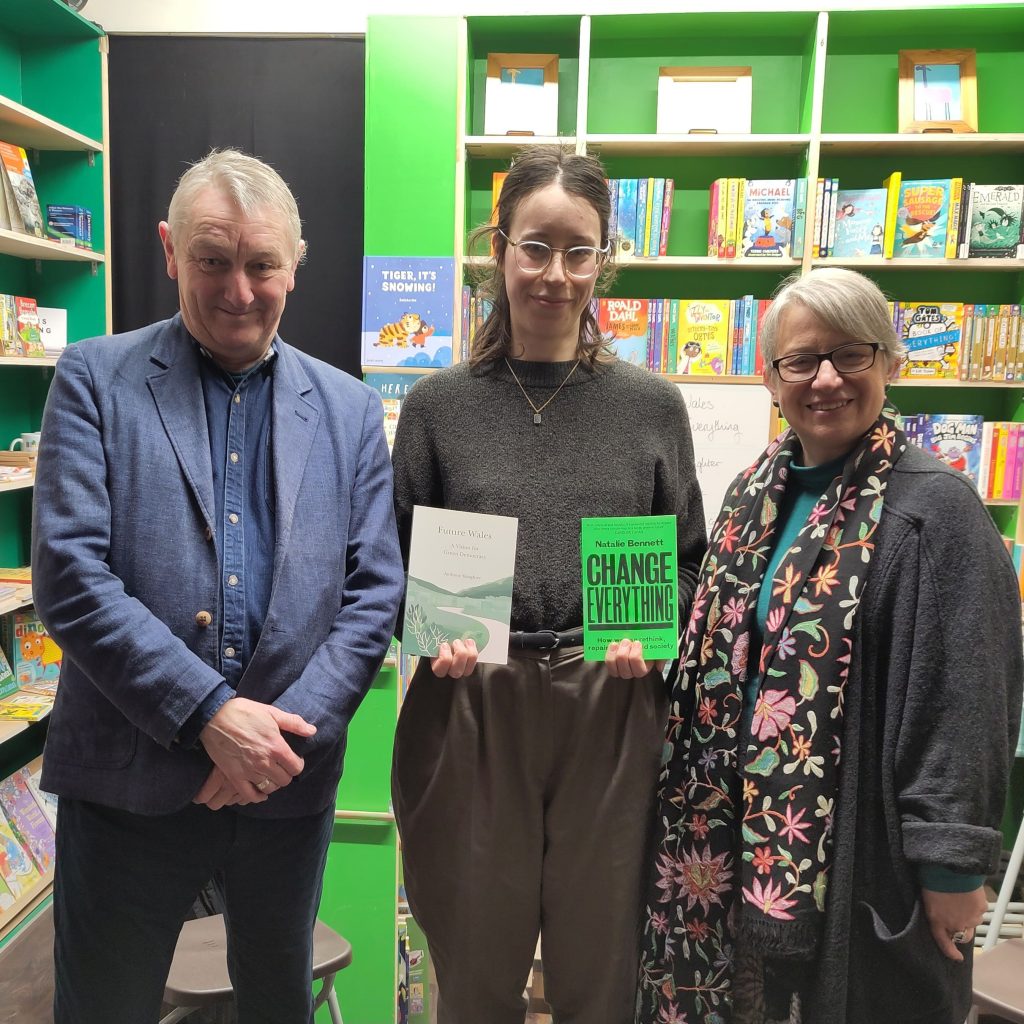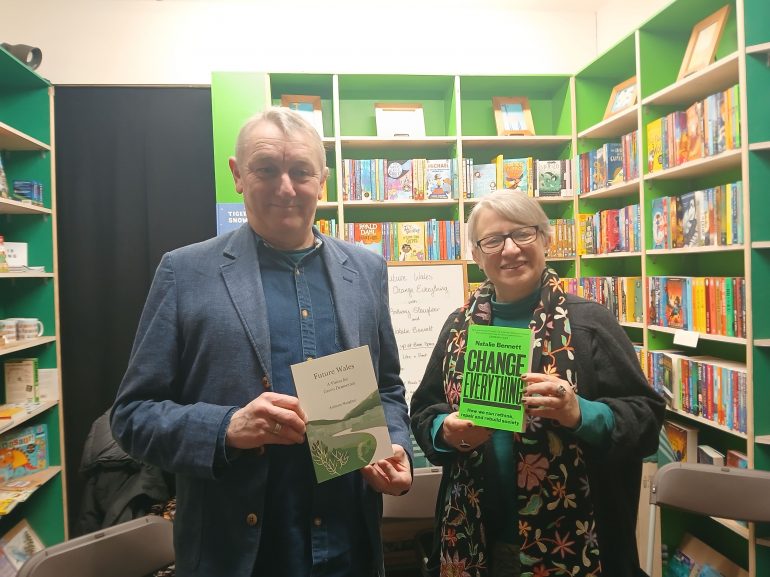Poverty, food chain problems and a decline in nature are all linked, say Green Party leaders
TWO leading figures from the Green Party have outlined their ambitions for a greener and fairer future for Wales.
One of the biggest challenges facing Wales is inequality, particularly child poverty, said Anthony Slaughter, leader of the Wales Green Party, at an event to publicise his new book, Future Wales.
The decline of nature and threats to the food chain are directly linked to this poverty.
“They are not separate problems. They are all driven by our out-dated economic system – a system which exploits both communities and nature,” says the party’s manifesto.
Mr Slaughter linked inequality to a lack of democracy in the political system.
“People who have nothing, have no investment in democracy. We have to be offering something,” Mr Slaughter told an audience at Book Space in Cathays on February 14.
Natalie Bennett, the House of Lords peer and former leader of the Green Party of England and Wales, agreed.
She said change to the system was needed rather than just individual behaviour if the UK was to transition to a greener future.
The both believe introducing greener policies would lead to a world in which people could heat their homes, eat healthy, sustainable food and breathe good, clean air.
The party believes Welsh independence is vital to build a greener future. Mr Slaughter said the Welsh government should be “pushing for fairer funding for Wales” to tackle environmental issues.
The Welsh party leader said the election of Donald Trump was “deeply worrying” for the global fight against climate change and highlighted the need for more co-operation with other countries such as those in the EU.
“We are living in very challenging times,” said Mr Slaughter.
“We can’t have infinite growth on a finite planet,” said Baroness Bennett, who was publicising her book Change Everything. “We have to collaborate with others.”
Mr. Slaughter said Trump’s election had encouraged anti-Net Zero voices in the UK and hoped the government would not now row back on its own targets.
“The importance of scrutiny has never been stronger,” said Mr Slaughter.
Mr Slaughter hopes there will be more Greens in the Senedd after the next election, and they need to think about how to use their power to enact change.

The Wales Green Party promises in its manifesto to cancel all licences recently granted to the fossil fuel industry.
Mr. Slaughter accused the Labour Party of allowing itself to be lobbied by big businesses, many of them from the fossil fuel industry.
“The government is desperate for an answer, and big business dangles these magical cures in front of them. And that’s what we’ve got to campaign against,” he said.
Mr Slaughter said that many people were opposed to renewable energy sources such as wind farms, because they are owned by multinational corporations.
“Community ownership of energy is key,” said Mr Slaughter. “We’ve got to be giving people something to believe in. Something they have control over.”
An audience member expressed concern about the proposed small modular reactors that could be introduced to Bridgend. Baroness Bennett stressed the cost of security around the reactors.
“Do you really want an SMR in your back yard? No, you don’t,” she said. “And if you don’t, you can stop this.”

Both speakers agreed that to attract voters, instead of talking about arbitrary targets and soundbites, the Greens should focus on communicating the small but vital benefits the green transition could bring.
“All our politics come down to a sense of community,” said Mr Slaughter.
“We need to give people a better life and better choices,” said Baroness Bennett.
- Book Space Cardiff announce all upcoming events via its website.



